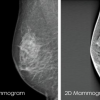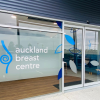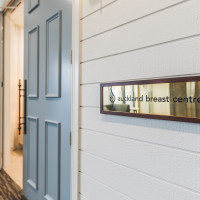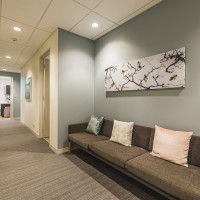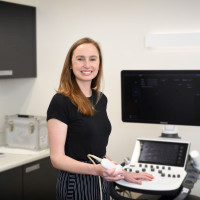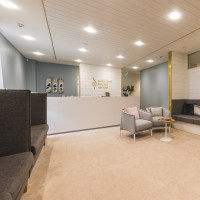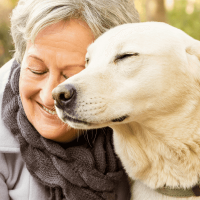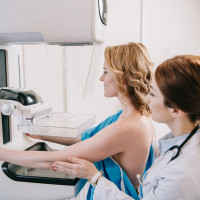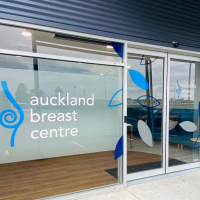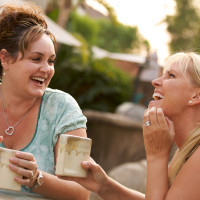We practice within a tight multi-disciplinary team of specialists and surgeons with our aim to tailor your treatment to target your breast cancer, specifically.
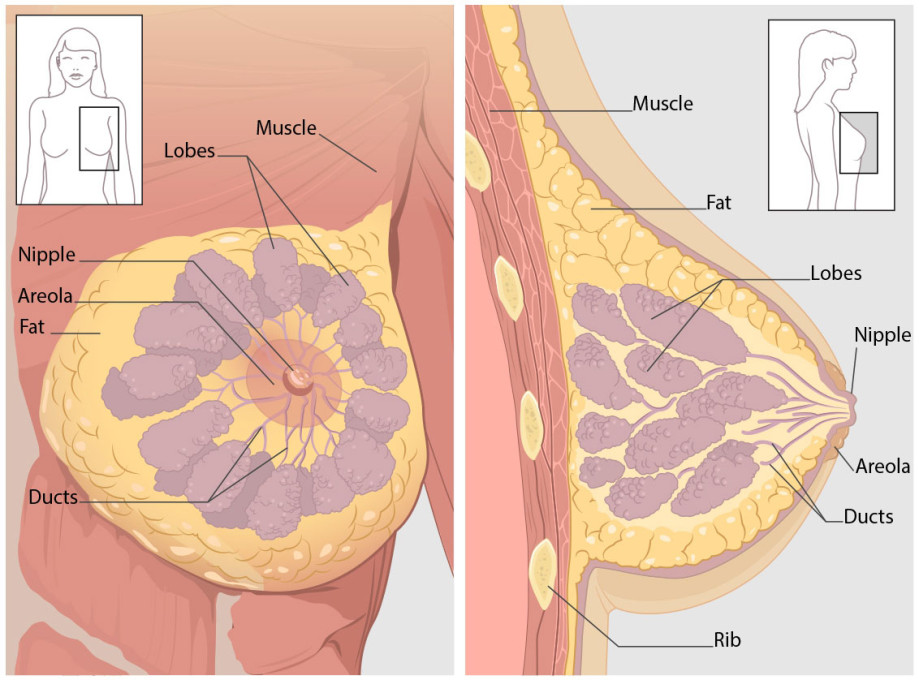
What does a normal breast look like?
The breasts are glands that are found within the fat layer of the chest wall. They are made up of the lobules that make the milk (like lumps of grapes), and the ducts (hollow tubes) that drain milk to the nipple. Between these units is the supporting or stromal tissue of the breast which also includes fatty tissue.
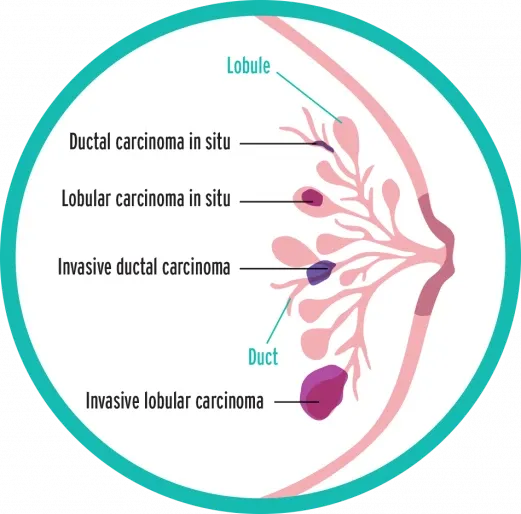
What is breast cancer?
Breast cancer is a condition where the normal cells of the breast become abnormal (mutated) and grow out of control and invade other tissues around them. It can start from cells in the ducts, lobules or more rarely the stromal tissue in the breast. It is a very slow process initially from atypical cells as seen in the picture below. No breast cancer is the same as another as the mutations the cells have are unique which is why breast cancer treatments can be different between people as well. Breast cancer can also spread out of the breast to other parts of the body via the lymphatics (lymph glands) or blood stream.

Is this cancer my fault?
No! Breast cancer is an accident of cell division. Even with all the risk reducing behaviours we can manage, some women will still get breast cancer.
What sort of treatments are there?
Breast cancer can be managed in a number of ways, briefly:
- Surgery - to remove the cancer;
- Radiation - to sterilise the area around the cancer or to shrink cancer;
- Chemotherapy - medication given via the vein or tablets to target the cancer cells;
- Immunotherapy (like Herceptin) - antibodies given by injection to target receptors on the cancer cells;
- Endocrine therapy - medication given to block the estrogen (hormone) stimulation of the cancer cells, or to reduce the hormones in your body.
At Auckland Breast Centre, you are managed by a team of surgeons, radiologists, pathologists and oncologists to determine the breast management for you. Sometimes, we do the surgery first; sometimes we give the chemotherapy first. Either way, our job is to tailor your care to you, your wishes and your needs.
What about our daughters?
Women start accumulating their first mutations and risks of breast cancer between their first period and their first term pregnancy. In that time, the cells of the breast are vulnerable, can mutate easily and are not very good at repairing themselves. During that time, the best things to remember are:
- There is no safe amount of alcohol for girls under 18 years;
- Avoid binge drinking in 20s;
- Keep them moving;
- Encourage weight within the normal range;
- Encourage a diet rich in vegetables, fibre and plant protein.
We are receiving a number of queries from breast cancer patients about the safety of getting the vaccination if they have had breast cancer, and also if they are currently receiving treatment.
There is no question about the safety and efficacy of the Pfizer vaccine that is being offered in NZ. It is also especially important to be vaccinated if you have cancer now, or if you have ever had cancer.
Evidence from Penn Medicine showed that patients who have or previously have had cancer, and tested positive for COVID-19 had higher rates of hospitalisations, intensive care unit admissions and mortality, than those who had never had cancer.
The team at Auckland Breast Centre is also fully vaccinated so you are in safe hands.
